Massive 'Invasion Day' protests staged across Australia on national holiday
Thousands of Australians have marched across the country, rallying in support of indigenous people’s rights and protesting against marking their country’s national day on the date that British colonization of their land started.
In Sydney, the capital of New South Wales, Australia's most populous state, on Thursday, social media showed large crowds gathered at an "Invasion Day" rally in the central business district, where some people carried Aboriginal flags.
Similar protests against "Australia Day" also took place in other Australian state capitals, including Melbourne, Adelaide, and Brisbane.
Australian Prime Minister Anthony Albanese, at a flag-raising and citizenship ceremony in Australia's capital, Canberra, honored the nation's indigenous people and said, "Let us all recognize the unique privilege that we have to share this continent with the world's oldest continuous culture."
While it was a "difficult day" for indigenous Australians, there are no plans to change the holiday's date, he said, however.
The January 26th public holiday marks the date British fleet sailed into Sydney Harbor in 1788 to start a penal colony, viewing the land as unoccupied despite encountering settlements.
There are growing public calls to change the date of "Australia Day," which is known to many indigenous people as Invasion Day and Survival Day, because of the disastrous impacts of British colonists taking the land of First Nations people without a treaty.
"If someone invaded your home, murdered your family, and stole your land, I can 100 percent guarantee that family would not be celebrating that day," indigenous activist Paul Silva said, adding the national holiday should be abolished.
Several councils have moved their citizenship ceremonies, traditionally held on January 26, to other days. Moreover, amid the debate, some companies also have adopted flexibility around observance of the holiday.
Indigenous Australians have lived on the Australian Continent for at least 65,000 years, but have suffered widespread discrimination and oppression since the arrival of the British in 1788. Australian historian Lyndall Ryan has estimated that more than 10,000 indigenous people were killed in 400 separate massacres since British colonization first began.
At present, many of Australia's 880,000 or so indigenous people out of a population of 25 million lag behind others on economic and social indicators in what the government calls "entrenched inequality."
This year's holiday comes as Albanese's center-left Labor Party government plans a referendum on recognizing indigenous people in the constitution, and requiring consultation with them on decisions that affect their lives.
The government plans to introduce legislation in March to set up the referendum that will take place later this year, as the voice of the indigenous shapes up as a key federal political issue.
The Australian constitution, which came into effect in January 1901 and can't be amended without a referendum, does not refer to the country's indigenous people. Indigenous people were even banned from voting in some states and territories until the 1960's.
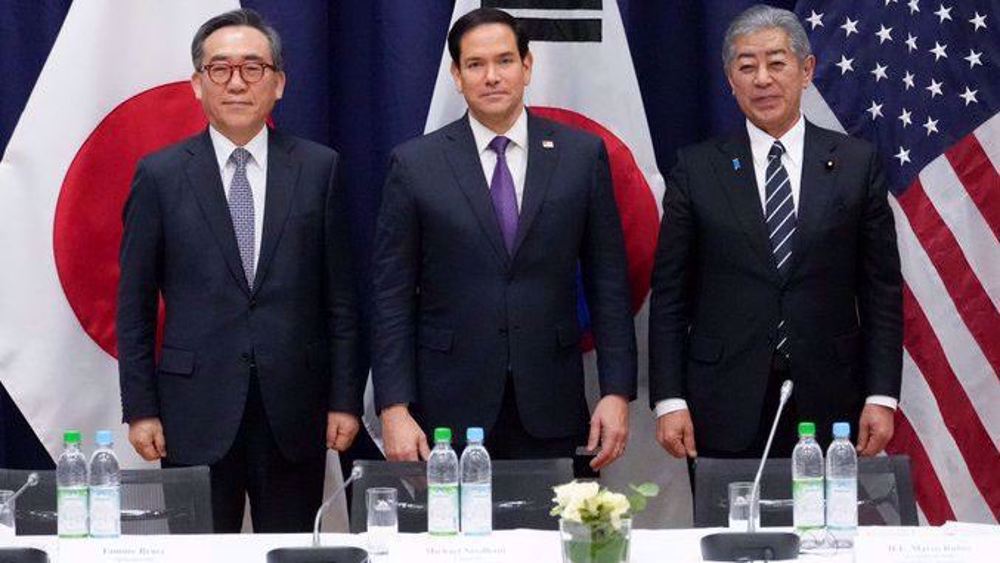
US, Japan, S Korea renew calls for ‘complete denuclearisation’ of North Korea
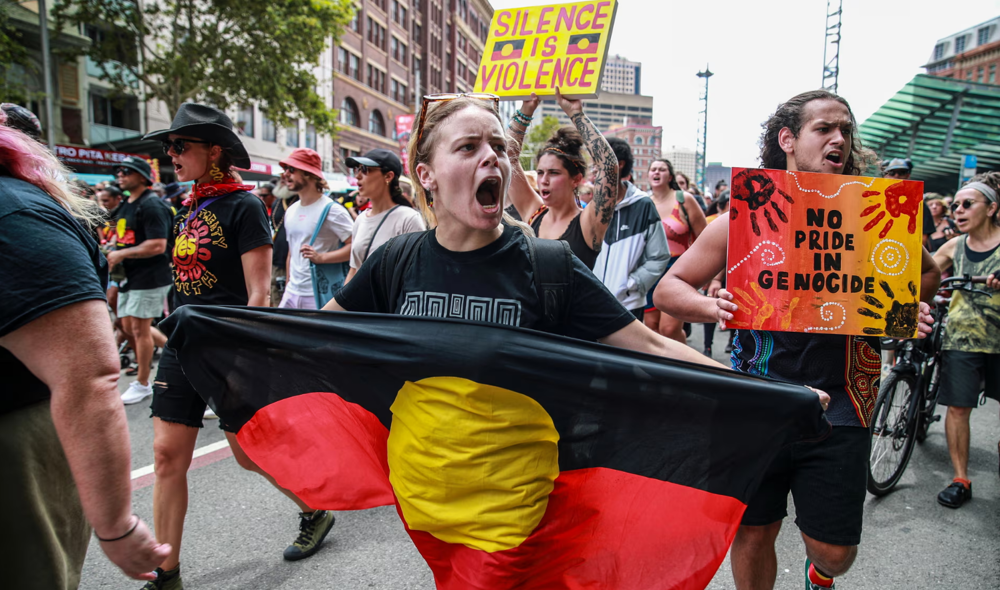
Indigenous rights activists rally on Australia Day to protest British colonization legacy

Colonialist’s monument toppled in Melbourne ahead of Australia Day
Hezbollah's display of power proved resistance cannot be eliminated: Iran parl. speaker
Israel escalates West Bank raids as official says regime seeking to complete Gaza genocide
Australian senator smeared by anti-Iran groups for saying Iranian women 'have a voice'
Palestinian man dies in Israeli prison as Foreign Ministry urges intl. probe into regime’s crimes
Putin says not opposed to Europeans’ involvement in Ukraine talks
VIDEO | Iranian Kurdish protesters demand European action against PKK, PJAK terror
VIDEO | Israel expands offensive in northern West Bank, deploys tanks to Jenin
VIDEO | Spaniards fill streets of Cádiz in solidarity with Palestine


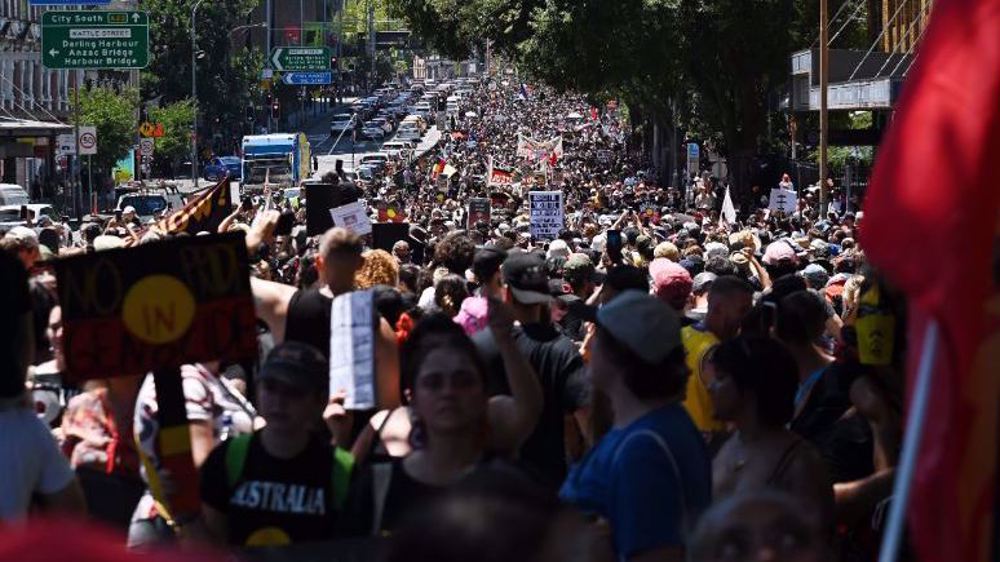
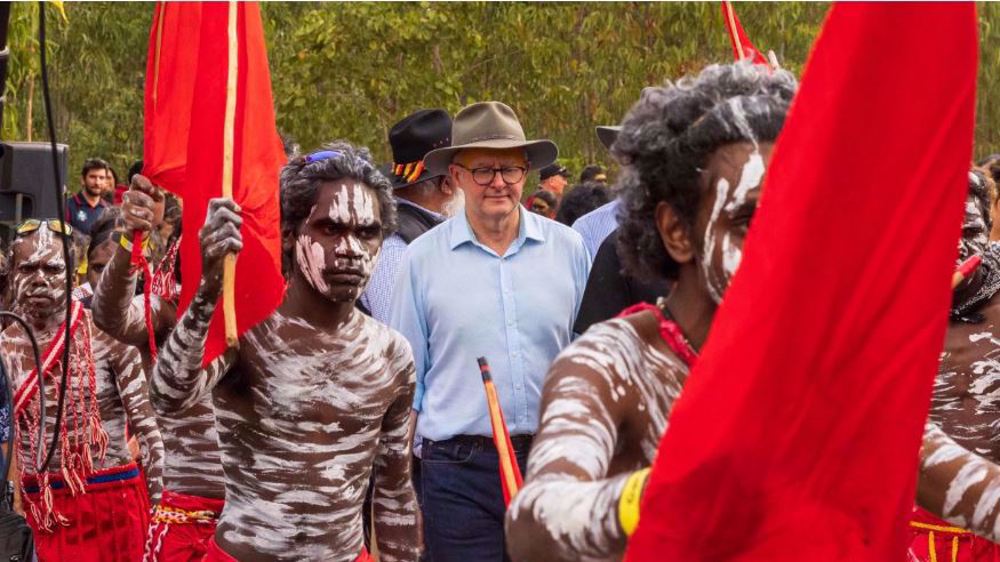



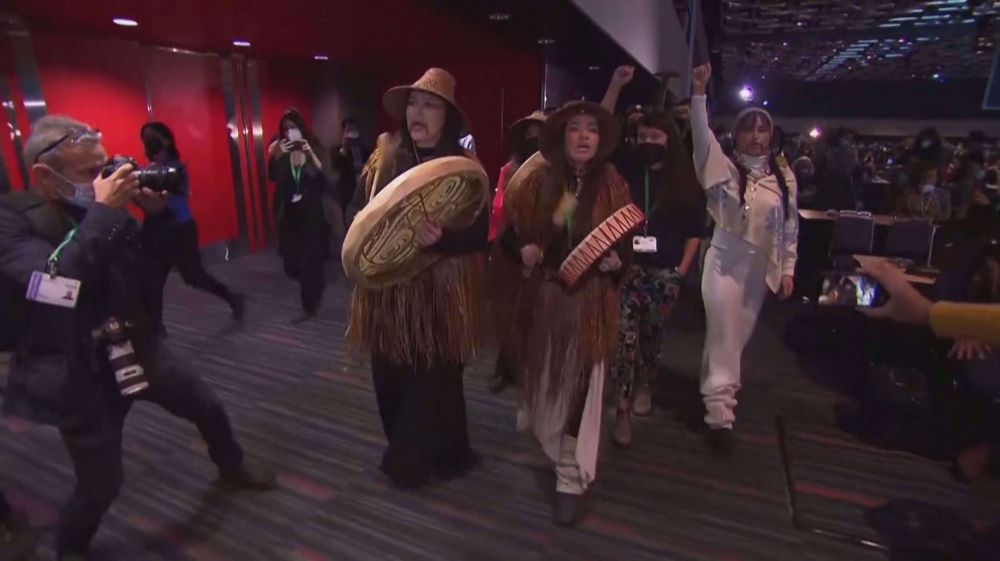

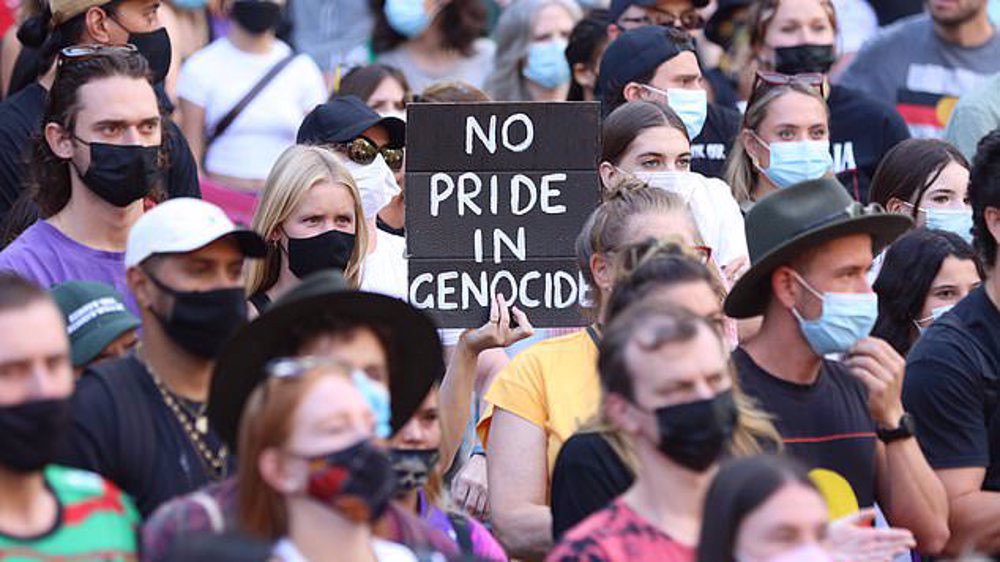

 This makes it easy to access the Press TV website
This makes it easy to access the Press TV website